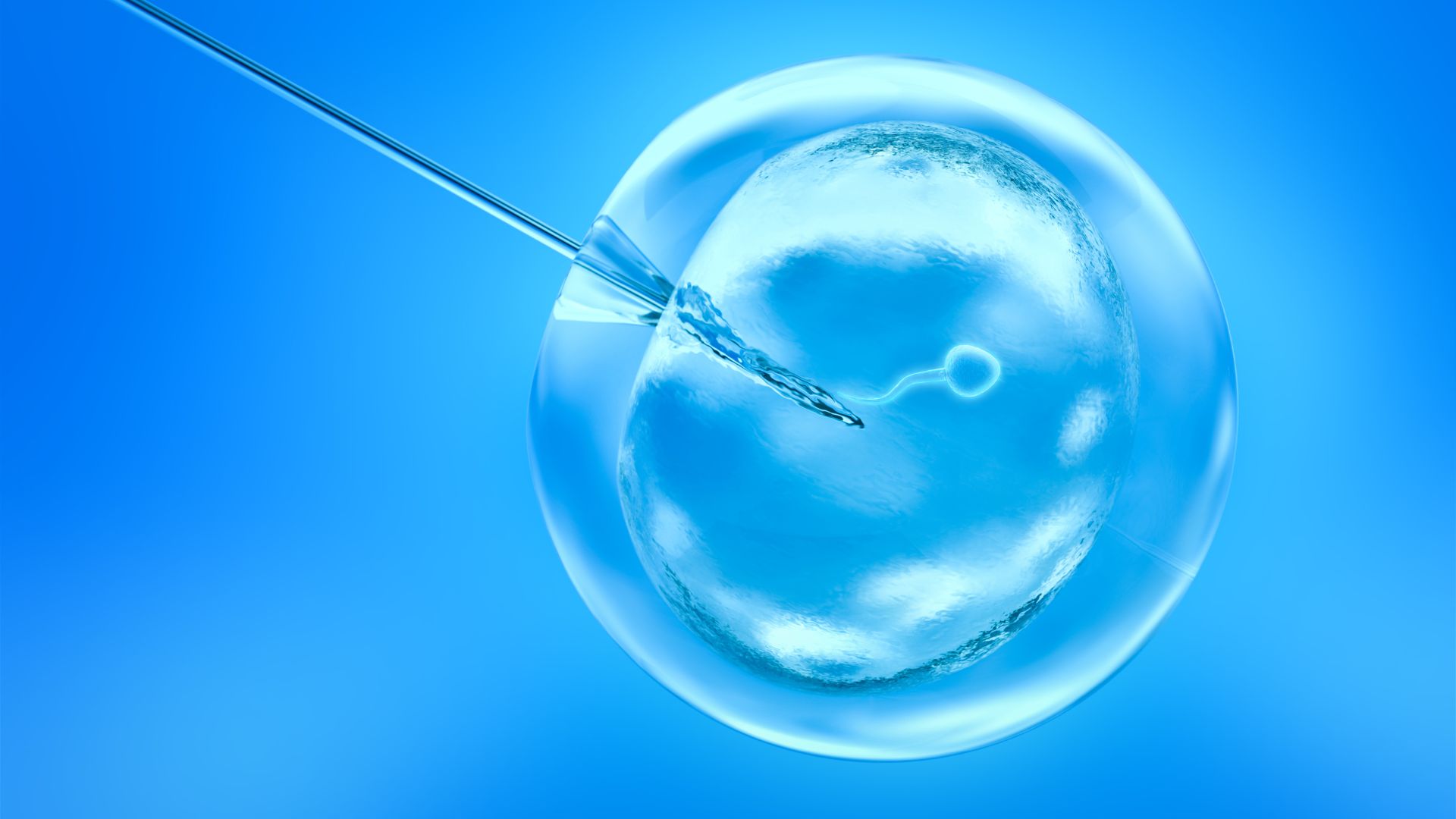
If you’re looking to build your family and exploring the world of assisted reproduction, you might find yourself asking, “What is IVF?”
In vitro fertilization (IVF) is a process where an egg is combined with sperm outside the body and then transferred to the uterus with the hope of achieving a successful pregnancy.
The statistics on the success rate of IVF can seem daunting. However, despite the complexity of the IVF procedure and the costs of IVF in India, many couples and individuals have realized their dreams of parenthood through this advanced medical technology.
The journey to successful IVF spans more than the medical procedure. It’s also a journey of lifestyle changes, emotional balance, and immense perseverance.
It’s important to know what to expect during IVF and how to increase your chances of success.
This article aims to help every prospective parent facing the challenge of IVF. Below, we’ll explore evidence-based approaches for enhancing fertility and increasing the chances of IVF success.
Lifestyle Changes with Proven Impact
The Fusion of Science and Diet: The Role of Nutrition in Fertility
Fueling fertility isn’t just about maintaining the ideal weight for IVF, but about creating a nurturing environment for optimal reproductive health.
A well-balanced diet, rich in whole foods, fruits, vegetables, lean proteins, and whole grains is an excellent starting point for better fertility and overall well-being.
Certain nutrients are vital for reproductive health:
- Folate: Found abundantly in leafy greens, citrus fruits, and fortified grains, folate is paramount for healthy fetal development and reducing the risk of certain birth defects. For those on a fertility journey who may lack adequate folate in their diet, enriched foods and supplements may be a viable consideration.
- Vitamin D: To ensure sufficient Vitamin D intake, taking advantage of natural sunlight is ideal. However, with many of us spending considerable time indoors, Vitamin D deficiency isn’t uncommon. Therefore, discussing supplementation with your doctor could be beneficial.
- Omega-3 fatty acids:Omega-3 fatty acids well-known for their anti-inflammatory properties may enhance egg quality. These essential fatty acids can be found in fish like salmon and plant-based sources like flaxseeds.
Stay tuned for further segments, where we will discuss the role of exercise, supplements and beyond, preparing for your IVF cycle, and dealing emotionally with the IVF process.
Remember, as you move forward, our aim here is to address your IVF-related concerns and answer common questions.
You’re not alone on this journey. Through understanding and information, scientific advancements, and emotional support, the path ahead, while daunting, has the potential to be filled with rewards of unparalleled joy.
Exercise: Finding the Right Balance
The often-quoted adage, “Exercise is good for you,” holds especially true when discussing fertility enhancement strategies, with numerous studies pointing to the array of benefits.
Regular, moderate exercise helps in maintaining a healthy weight, which is critical since both underweight and overweight conditions can impede fertility. Exercise also aids in boosting blood circulation and promoting hormonal balance—each a friend to fertility.
Yet, balance is key. Overexertion or high-intensity routines can do more harm than good, possibly impacting ovulation and negatively affecting fertility. It’s about finding the sweet spot. Here are some exercise recommendations that can be incorporated with ease:
- Brisk Walking or Jogging: This simple aerobic activity is effective in bleeding off stress without over-taxing the body.
- Yoga or Pilates: Mind-body exercises like yoga can improve flexibility, reduce stress, and enhance mental focus—all of which are beneficial during the IVF journey.
- Swimming: Offering a full-body workout, swimming is gentle on the joints and helps in maintaining muscle tone and cardiovascular health.
- Light Strength Training: Building strength can improve endurance and resilience—both physical and mental—which could be beneficial in the course of IVF treatments.
Before engaging in a new exercise regimen, it is always wise to consult with your healthcare provider, particularly when undergoing or preparing for IVF treatments.
This is to personalize your exercise plan in alignment with your overall health and specific IVF requirements.
For individuals and couples considering IVF, taking proactive steps through lifestyle adjustments can be empowering.
By aligning diet and exercise with evidence-based practices, you not only ease your path through the IVF process but also bolster your overall wellness.
Supplements and Beyond
While a nourishing diet is the cornerstone of any prep for IVF, there are times when specific supplements may help fill the gaps.
However, it’s paramount to foreground this section with a firm reminder: always consult with your fertility specialist before adding any supplements to your regimen. Why? Because they can interact with other medications and affect your IVF protocol in unforeseen ways.
Supplementing Fertility
- Prenatal Vitamins: It’s widely recommended to start on prenatal vitamins even before conception. These contain a host of nutrients, such as folic acid and iron, crucial for a healthy pregnancy. Consider prenatal vitamins as an investment in both your and your future baby’s health.
- Coenzyme Q10 (CoQ10): This powerful antioxidant could be particularly supportive in improving egg and sperm quality—an area often highlighted for those facing age-related fertility challenges. Remember, while CoQ10 is naturally occurring in the body, its levels decline with age.
- Dehydroepiandrosterone (DHEA): For women with diminished ovarian reserve, DHEA supplements might offer a glimmer of hope. But tread with caution; the research is evolving, and your clinic can provide personalized guidance.
Complementary Therapies: The Balancing Act
Turning to traditional and complementary therapies can be a heartening way to support your IVF journey. In particular:
- Acupuncture: This technique from Traditional Chinese Medicine is believed by some to enhance blood flow to reproductive organs and help balance hormone levels, which might contribute to improving the odds of IVF success.
- Mind-Body Therapies: The rigors of IVF can strain the sturdiest of us emotionally; mind-body therapies like meditation, biofeedback, and guided imagery offer mental oases where solace can be found.
Importantly, should you opt for these complementary approaches, it’s critical to look for practitioners with a track record of working with infertility patients.
Aligning such therapies with conventional medical treatments should be done judiciously to create a harmonious fertility enhancing plan.
As we edge closer to the commencement of your IVF journey, these supplements and therapies could bear consideration as part of your deeper preparation strategy.
Not only can they potentially enhance IVF outcome chances, but they also position you in a more centered and grounded place as you proceed with treatment.
The upcoming segment will focus more sharply on the prelude to your IVF cycle—the physical preparations, partnership considerations, and the emotional dimension that often remains shadowed, yet is critically influential in your journey.
Preparing for Your IVF Cycle
Embarking on an IVF cycle is akin to preparing for a marathon; both physically and emotionally demanding. Getting ready means taking proactive steps and making decisions guided by your medical team’s expertise.
Physical Preparation
Before the starting pistol is fired, a comprehensive assessment of health is key. You can expect your fertility specialist to recommend several screenings and tests to evaluate hormone levels and overall health—a foundational part of the IVF process.
- Bloodwork and Screenings: Blood tests measure hormone levels and can provide insights into potential challenges or adjustments needed for treatment.
- Medications: Many IVF protocols involve a closely monitored course of fertility medications intended to optimize the ovaries’ response and egg quality. These medications are a significant part of the process and will require careful adherence.
- Pre-existing conditions: Conditions like thyroid imbalance or polycystic ovary syndrome (PCOS) need to be well-managed as they can impact IVF outcomes.
Partnership Preparation
IVF not only asks a lot of the body but also of the hearts involved.
For couples, it’s a journey taken together:
- Expectations and Decision-Making: Understand that the IVF path may have turns and detours. Discussing expectations openly can prepare you and your partner for the diverse outcomes that might unfold.
- Support Roles: What each partner needs may differ. One might require physical closeness, while another finds solace in shared hobbies or tasks. Understanding these needs and how to meet them can act as a glue when things get tough.
- Boundaries: A necessary conversation for couples is the degree to which they will include others. Setting boundaries about what to share and whom to involve can prevent stress down the line.
Techniques such as preimplantation genetic screening (PGS) and intracytoplasmic sperm injection (ICSI) may also be discussed as part of your individualized IVF cycle.
Pre-cycle Care
Understanding the egg retrieval process and the risks associated with multiple pregnancies should be part of your decision-making framework.
And looking ahead, you’ll want to prepare for the potential costs that may accrue after IVF and even explore ways to manage IVF on a budget .
It’s also beneficial to consider the “whys” and “whens“—why are you turning to IVF, and when is the best time for you to begin?
In the next part of our discussion, we’ll delve into the emotional demands of IVF and offer strategies to handle the rollercoaster of emotions that often accompany this process.
The Emotional Side of IVF
The emotional landscape of IVF is intricate and personal. As much as IVF is a medical process, it is also an emotional journey fraught with highs and lows. Understanding and navigating these emotions is crucial for your mental health and can impact the IVF outcome.
Normalize the Experience
The first step in climbing the emotional hurdles of IVF is to normalize the varied feelings that may arise. Realize that it’s common to experience a spectrum of emotions—from hope and excitement to anxiety and disappointment.
You’re not alone in this; infertility is more prevalent than you might think, and there’s strength in that shared experience.
Coping Mechanisms
Despite the commonality of these experiences, everyone’s coping mechanisms are different. Finding what helps you manage the stress and anxiety is key. This could be through:
- Support Systems: Whether it’s through in-person support groups, online communities, or just leaning on close friends and family, emotional support is paramount.
- Self-Care: Engage in activities that soothe and ground you. This could be a gentle spa day, a quiet hike in nature, or simply reading a book by your favorite author.
- Therapy: Speaking with a therapist who specializes in infertility can offer valuable perspective and coping strategies. Therapists can equip you with the tools to manage emotions through the cycles of IVF, including how to cope with IVF failure.
Building Resilience
Working towards building your emotional resilience will help you navigate the IVF journey with more ease.
Some ways to do this include:
- Mindfulness Practices: Techniques such as meditation and deep-breathing exercises can help maintain emotional balance.
- Journaling: Writing down your thoughts and feelings can be a therapeutic way to work through the complex emotions that accompany fertility treatments.
- Education: The more you understand about the process, including the risks of multiple pregnancies or the nuances of using donor sperm or donor eggs, the better prepared you will be for the ups and downs.
Taking care of all aspects of yourself will not only increase your chances for IVF success but will enrich your overall quality of life, regardless of the outcome.
Conclusion: Strength, Hope, and Resilience
As we bring our discussion to a close, remember that the IVF journey is one that requires courage, determination, and a willingness to adapt. It is a path that can be as rewarding as it is challenging, particularly when you are equipped with the right information, support, and mindset.
Through careful preparation, informed choices about diet and supplements, the integration of complementary therapies, and the cultivation of an empathetic support network, you can not only optimize your chances for a successful IVF but also enhance your overall well-being.






